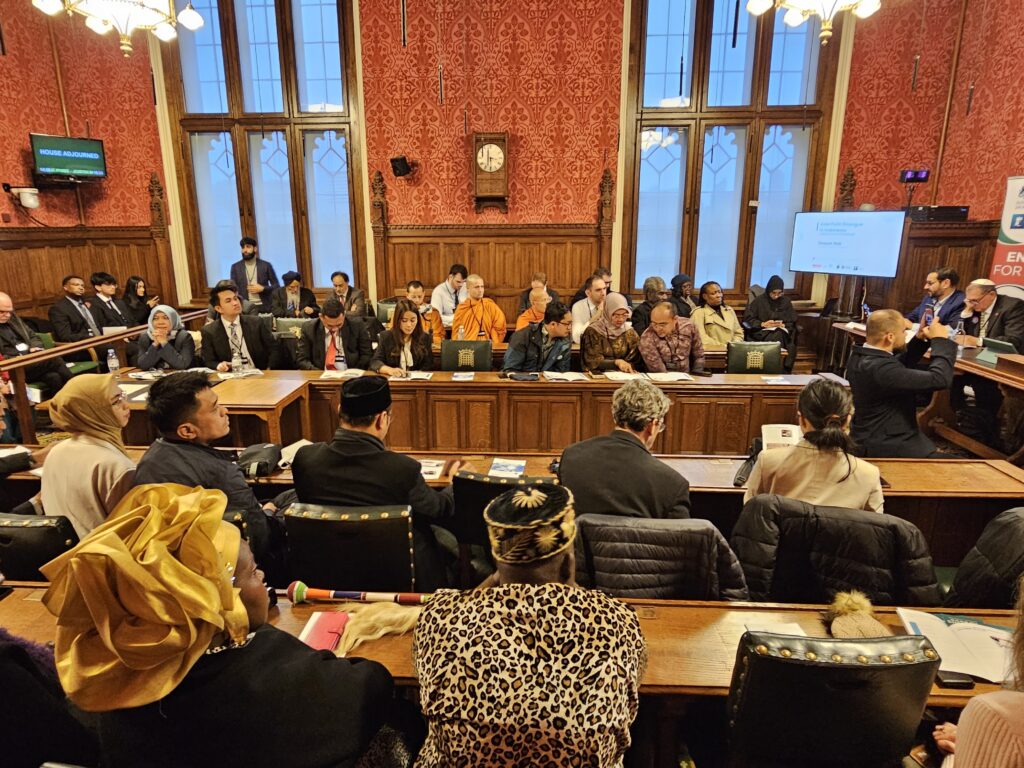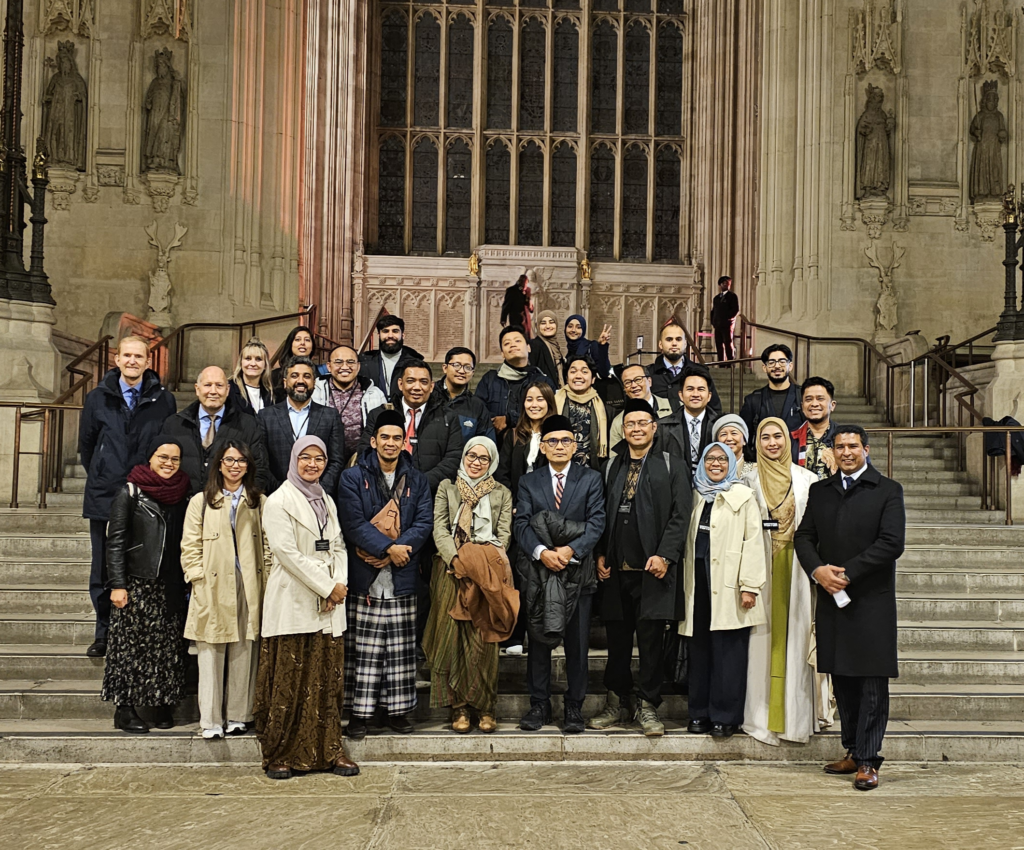The UK has a fairly developed interfaith scene with last week named as Interfaith Week. Hundreds of events were held around the UK by interfaith and religious groups to showcase the value of interfaith in society.
One such event was hosted by Sir Stephen Timms, MP and organized by the All Faiths Network and Minhaj Welfare Foundation. The conference was held in the UK Parliament titled Interfaith Works: Living Examples.
The event highlighted the positive impact of interfaith collaboration in addressing societal challenges amidst increasing global conflicts. Speakers emphasized that faiths and interfaith organizations can contribute to improving social conditions, support communities, and provide a space for conflict resolution. It was held during UK’s Interfaith Week – a series of events held throughout the UK every year to strengthen and promote interfaith activity.
Following Sir Stephen Timms welcoming introduction where Sir Stephen emphasised his long support for religions working together, Mr Weightman, Director of All Faiths Network set the background for the conference and underscored the importance of interfaith relations in resolving social discord and building understanding.
Summarising the event afterwards he said, “This was a wonderful panel of speakers who approached interfaith from different angles. Academic research and implementation; on-the-ground examples of how interfaith works and how religions can work together; religions helping the wider community beyond their own members and the sharing of faith backgrounds, cultures and arts to bring about greater understanding and help to resolve conflict. There is no doubt in my mind that together we can create a better society and more constructive communities throughout the world if only we use the tools available to us through interfaith activities and have the will to do so.”
Adnan Sohail, Director of Operations at Minhaj Welfare Foundation, emphasized the role of faith-based organizations in serving humanity beyond religious boundaries. “Faith-based organisations play an important role in our societies, especially in their service to humanity because they go beyond religion, colour or creed, helping provide a better life for those living in poverty.”

The speakers were Dr Elizabeth Phillips, Director of Education and Engagement at the Woolfe Institue; Mustapha Field, Director of Faiths Forum 4 London; Esmond Rosen, President and Trustee of Barnet Multifaith Forum; Deepak Naik EU Trustee for United Religions Initiative; Neneng Yanti, English for Uluma and Dr. Desra Percaya, Indonesian Ambassador to the UK. The event also welcomed a delegation of 5 Imams and 10 government officials from Indonesia, seeking insights into successful interfaith models in the UK. The organisers plan to do a follow-up summarising the content of the speakers.
During the question and answers period, a question was asked as to whether the government-commissioned Blum Report would have any effect on improving the UK interfaith landscape. This report was issued earlier this year. Mr Weightman responded that whilst it had many positive proposals, such as improving education of, and cooperation between, government officials and religions, it also created an artificial categorisation of “three types of religions” which went against fundamental principles freedom of religion or belief principles and weakened the report significantly. Mr. Rosen also responded saying that it was also a missed opportunity to strengthen and build on interfaith activities in the UK. The report has not been, nor is it likely to be, adopted by UK government.

The conference highlighted the great potential there is for interfaith groups and religions to have a strong supporting and creative role in society but also that more open dialogue is needed between different faiths and other players to build understanding and divisiveness. Faith groups played a significant part in social action initiatives they are involved in to help vulnerable groups and that more government assistance is needed to support these activities.
———-
First published in this link of The European Times.
